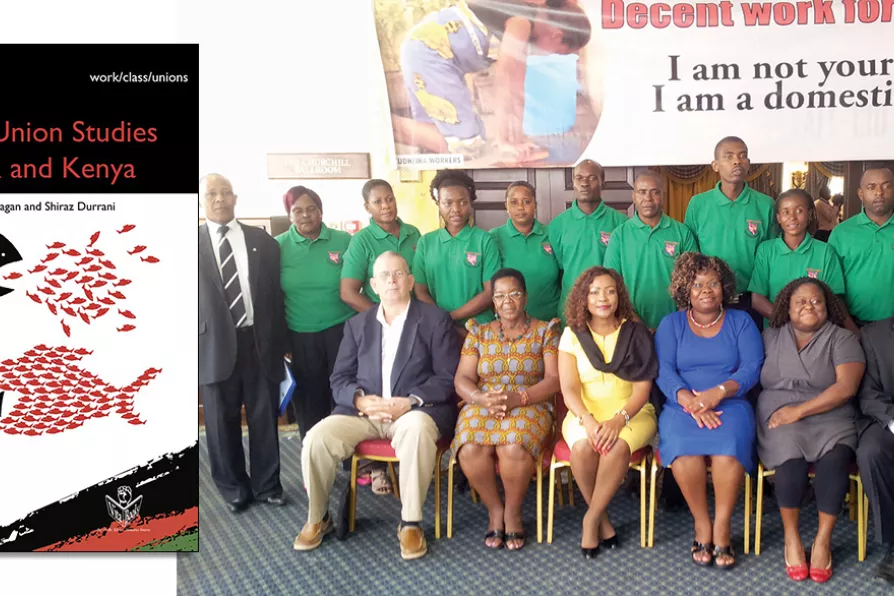MARIA DUARTE picks the best and worst of a crowded year of films

 TASKED: The newly elected National Domestic Workers Council in Nairobi, Kenya, 2015
[IDWF/Vicky Kanyoka/flickr/CC]
TASKED: The newly elected National Domestic Workers Council in Nairobi, Kenya, 2015
[IDWF/Vicky Kanyoka/flickr/CC]
Trade Union Studies in UK and Kenya,
Nigel Flanagan and Shiraz Durrani, Vita/Manifesto, £26.25
SHIRAZ DURRANI has written extensively on the class struggle in Kenya and Nigel Flanagan on organising workers in trade unions. Durrani is Kenyan and Flanagan British and in this book they bring together perspectives and analyses on barriers to trade union organising, and highlight exemplary lessons from the global South and global North.
Flanagan takes an activist perspective and makes a critique of the failures of traditional methods used by union officials. Flanagan’s message is that workers don’t need missionaries and gurus using top-down management-style leadership, with officer-controlled projects and a low level of membership engagement.
“The ideas of solidarity, unity and collective action are more easily understood than the gurus and the bureaucrats believe,” he says. The key is to see members as resources and not as passive actors. He asserts: “No sustained trade union growth has been led by officers.”

In a speech to the 12th Xiangshan Forum in Beijing, SEVIM DAGDELEN warns of a growing historical revisionism to whitewash Germany and Japan’s role in WWII as part of a return to a cold war strategy from the West — but multipolarity will win out

SALEEM BADAT and VASU REDDY introduce a new book about an outstanding interpreter of the world, and an activist scholar committed to changing society

RON JACOBS salutes a magnificent narrative that demonstrates how the war replaced European colonialism with US imperialism and Soviet power











